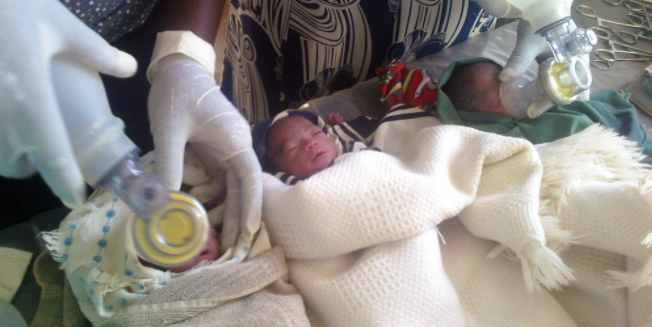It takes hours to transport medical supplies from Mulago to Kawempe Hospital – a nearly five-kilometer journey.
And this is the excuse officials at the National Referral Hospital are giving after the suffering a one-hour gap without oxygen last week that resulted into several deaths at Mulago’s gynecology and obstetrics department north of Kampala and in many cases patients who should have been saved have died in the past three weeks.
Mulago Hospital spokesman Enock Kusasira downplayed the Thursday disaster but 59 year-old first mother Magdalene Namakula who miraculously gave birth to three babies and lost two during the oxygen disaster is inconsolable.
Investigative journalists Gloria Nakajubi pens about how in the highly skilled hands of two senior gynecologists, two senior pediatricians, two senior anesthesiologists and a host of nurses, Namakula, a resident of Mubende last week underwent a successful C-section, becoming a mother for the first time. It was not just one baby, but three. She originally had quadruplets, but one died while in the womb while two died after they were born.
She had gone through three broken marriages and stigma of society always that reminded her of her childlessness even after being sponsored for removal of fibroids at 44 in 2006 before undergoing further free fertility treatment at Women’s Hospital in Kampala.
Dr. Evelyn Nabunya, a senior consultant gynecologist who led the team said that after monitoring Namakula since January, they could not to full term because one of the babies died in the uterus. The doctors, therefore, decided to deliver all the babies. Namakula besides being of advance age also had elevated blood pressure and there was fear among the doctors that her body would not contain the anesthetic drugs.
“They were delivered premature but showed very high prospects of survival,” Dr. Nabunya said.
Two of Namakula’s babies passed away on Thursday in the special care unit. They died when the oxygen cylinder on which they were sucking ran out. That night, a total of five babies passed away and although doctors argued that some were too overweight to survive, oxygen challenges contributed significantly.
But sources disclose that the Mulago facility (one fully operational and the other undergoing repairs) generate in excess of sh90million a month from the sale of oxygen to private medical facilities has been turned into a business. Sources say the problem was likely that priority was being given to private health facilities and profit generating units at the hospitals where patients pay money for services.
No drugs, understaffed and overwhelmed
The source said that at some point, because the situation was unbearable, the administrators asked nurses to advise patients’ attendants to contribute atleast sh1,000 so that they could pool some money to buy the oxygen at sh140,000 per cylinder.
Surfactant, a critical drug which is usually given to pre-term babies immediately they are born to prevent respiratory problems is among the many that are not on the essential drugs list and, therefore, not provided by Government and leave them vulnerable to complications. Surfactant goes for not less than shs800,000 for 4mls on the market which is too expensive for a common Ugandan.
On average, the special care unit houses a total of 80 babies. However, on most nights, sources say there are just two nurses for all of them and can’t offer the close supervision that the babies in there need.
There is usually one nurses because one has to sit at the reception area since the fifth floor of Kawempe Hospital has no security at the entrance.

The unit’s only four pediatricians and a senior medical officer also have to cater for the outpatients’ clinics on Monday, Tuesday, Wednesday and Friday both at Mulago main and Kawempe while also teaching at Medical School.
“This is my Isaac,” a Namakula named her only surviving son of the three babies she delivered at Kawempe Hospital. “And I ask God to protect him for me,” she added after standing emotionless as she saw the tender heartbeat of her surviving baby.











